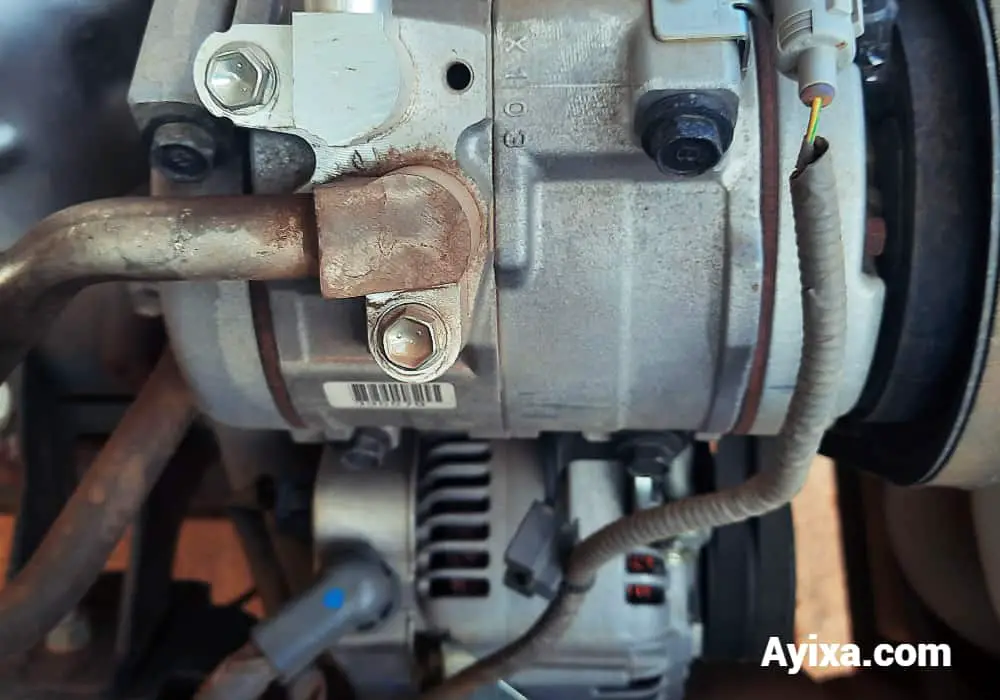Can an alternator work sometimes and fail to do so other times? While it is probably more common to have a sudden, catastrophic failure of an alternator, there are indeed cases where the car’s alternator charging is intermittent.
In some cases, the output voltage of the alternator may be in the recommended range of 13.5 – 14.5V DC only to drop to a much lower voltage later, in some cases as low as 12V or lower.
This post aims to describe the symptoms you’re likely to experience when this happens and lists the possible causes and solutions you can apply to get the car battery charging consistently.
Signs an Alternator is Charging Intermittently
If the alternator is charging intermittently, you may experience:
Car battery voltage readings going out of range
If the car has a DC voltmeter to monitor the battery voltage as you drive, the battery voltage will occasionally drop outside the recommended voltage of 13.5 -14.5 VDC when the car engine is running.
Flickering lights
The car headlights’ brightness may dim and brighten as you drive instead of being steady as the alternator voltage fluctuates.
#3. Battery Warning Light Flashing intermittently
The battery charge light may come on irregularly – sometimes lighting when the car engine is idling, accelerating, or decelerating.
Note: The above symptoms are not confirmation of intermittent charging as they can be attributed to other causes.
Why an Alternator may not be Charging Consistently
If the alternator is charging intermittently, it may be because of:
#1. Loose wire connections from the alternator to the battery. Inspect and confirm that the wire connection from the alternator (at positive cable stud) to the battery is firmly connected.
In addition to intermittent charging, you may see a melted stud as a result of sparking or overheating because of the intermittent wire connections.
#2. The alternator belt may be loosely fitted. Inspect the belt driving the alternator pulley as the engine runs.
Does it firmly grip and rotate the alternator pulley? Is it properly aligned? Charging from the alternator will be intermittent if the belt is loosely fitted and slips.
With the car engine switched off and the alternator not running, inspect the alternator belt condition. Does it show any signs of wear and tear? If so, replace it with another of the type recommended by the manufacturer.
The belt tension should be adjusted to manufacturer specifications for the best alternator performance.
#3. The alternator brushes may be worn and are no longer not making good contact with the commutator. This in turn leads to the intermittent performance of the alternator.
If you’re on a budget, you can take the alternator apart, and remove and fit new brushes.
Check and confirm too that the alternator bearing are still intact as you may need to replace it too.
#4. The alternator may not be properly grounded. If the alternator is not properly grounded, it may fail to charge or charge intermittently.
For more information on how to check the alternator wire connections, check this post. Bad alternator wires? What tests you can do?
Checks to Do
Check the alternator belt, and the wire connections from the alternator to the battery if you’ve got the skills to do so safely.
Alternatively, you can also have the alternator tested at a reputable auto shop.
Closing Thoughts
Do not rule out the possibility of the car alternator charging intermittently. Not all alternators quit permanently.
If you experience what appears to be intermittent alternator performance, a few places you can check, are the tension of the alternator belt, wire connections from the alternator to the battery, or even worn alternator brushes to mention but a few.
Do not hesitate to have the alternator tested at an auto parts store.
Recommended Posts

